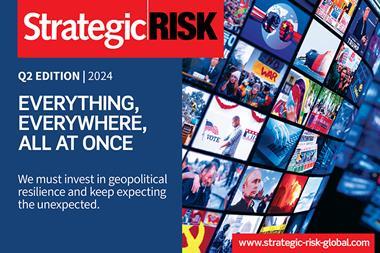It is time to stop reacting to the pandemic crisis and start managing operations in a new way, argues Vince Shiers
We are well past the immediate incident management or “alert” phase of the COVID-crisis and are now well into the “pandemic phase”, as defined by WHO.
Depending upon where you are in the world, you will be at different stages of this second phase, but no country has eradicated the virus. We could be here for some time and even after the pandemic phase, there is a potentially long “transition phase”.
It is therefore time to stop reacting to the pandemic crisis and start managing operations in a new way to fit the ongoing circumstances.
It is unlikely we will get “back to normal” any time soon. Professor Dale Fisher, Chair of the Global Outbreak Alert and Response Network steering committee for the WHO says, “This isn’t over until it’s over and most of us are thinking second half of next year would be a good outcome.”
So, we all have to adapt to working like this for quite some time. The economy must go on. Your business must go on. Put the short-term emergency measures behind you and start developing longer term practices.
Tips to add to your discussions:
1. Identify a pandemic “guru” within the business. This person should keep up-to-date on COVID-19 measures in all the countries in which you operate. They should provide your board or management team with weekly briefings on increases or decreases in society and business control measures. These will vary in different countries.
2. Beware the second wave. Relaxing restrictions too soon will result in increases in infections of the population. This is already being seen in some countries. As a business, you must comply with regulatory restrictions, but you do not have to relax them at the same speed as the regulators who face political pressure.
3. You will already have identified key business operations and personnel. These are key to running the business in a crisis. Now extend that to identify who you need to run the business in the longer term. This will be a larger group of people that will also enhance and increase your business capability.
4. Identify what your business can operate (and even thrive) without, such as international flights for meetings; sending auditors across the world when there are local specialists available; buying through extended supply chains when there are local options etc. Start developing these capabilities now.
5. Whilst focusing on the pandemic response, don’t forget the basics. Staff training must continue, so re-start the training programme using remote delivery techniques. Continue the internal audit programme to ensure the business is operating safely and effectively, along with any other programs that are needed to improve your operations in this long second phase.
6. Communicate with staff regularly. Encourage them to follow regulatory advice. Focus on personnel safety and ensure employees can communicate with you if they have concerns.
7. If you make products, all the hard work you do to ensure product safety must continue. If there were any deviations from standard practices in the first few days of the crisis, make sure the business returns to normal manufacturing controls and processes.
8. If you are an office-based company, you will probably be home-working. Try not to spend all day on the phone or in video meetings as it is a huge distraction from effective work. Only attend meetings that you are chairing or are a lead participant in. Don’t attend meetings for the sake of it. Try to remember this once you are back in the office.
9. Many certification audits have stopped. This introduces a new supply chain risk – suppliers not being independently checked and improvements implemented. Consider options for remote audits to maintain the robustness of your supply chain. This may also be something to consider for the future.
10. After the pandemic, don’t go back to business as usual. Use what you learned during this period and have a plan ready for operating in a leaner way. Get that plan ready now.
Despite spending 20 years in the crisis management business, the scale of this pandemic is something I and the rest of us have never seen before. Companies that fully adapt to the phases of the crisis and are best prepared for its eventual end are most likely to thrive in the new world.
Vince Shiers is managing director at RQA Group




















1 Readers' comment